I know that in my last podcast I promised another Chaplin movie was coming next, but that was before I discovered the film The Half-Breed, which, as luck would have it, comes exactly next in the chronology. Starring Douglas Fairbanks, The Half-Breed was released 20 days after The Vagabond, and 8 days before One A.M. It was almost as if fate decreed that I find the movie just in time to include it in my podcast. Serendipity, am I right?
Not so fortuitous were my discoveries of two other Douglas Fairbanks films, The Good Bad-Man and The Mystery of the Leaping Fish. However, as both were released in 1916, in April and June respectively, I decided to watch all three and talk about them together today, in much the same way that I watched some of Norma Talmadge’s older short films before talking about Going Straight. This is, after all, my first encounter with Fairbanks, who is a bona fide screen legend, so it’s only reasonable that I go back and watch a couple of his prior films to help me better understand who he was.
I’m also turning to a friend who knows far more about silent films than I do. That’s Dante. Today, Dante is joining me on the podcast to talk about Douglas Fairbanks in general, and these three films in particular. If you want to hear Dante’s thoughts, be sure to listen to the audio version of this article!
First off, I’ll share my thoughts on the three films. Douglas Fairbanks is a Hollywood legend. He was considered to be one of the four biggest stars of his age, and of any age, really, along with Charlie Chaplin, Mary Pickford, and William S. Hart. As such, I’ve been looking forward to seeing what he was all about. Will he be like Pickford and Hart— movie stars that instantly stunned me with their screen presence and talent? Or more like Chaplin, who has taken awhile to grow on me? Let’s find out!
First up, I watched The Good Bad-Man. Fairbanks plays an outlaw who is actually a good man. Honestly, I wasn’t terribly impressed by the film, and if I didn’t know that Fairbanks was destined to become I would not have identified him as a future star. It played like a William S. Hart knockoff, and Fairbanks seems out of place. He’s meant to be a tough gunslinger in the Wild West, but he came across to me as more of a middle-aged dad cosplaying as a cowboy. The film isn’t terrible, and neither is he, by any stretch, but nothing about it is great. Unlike early Chaplin films, where I don’t like Chaplin’s persona, I very much like Fairbanks’ demeanor and screen presence. The only issue is that he seems out of place in a Western, and very much as if her were trying to mimic Hart, who by this point had mastered the role of a good bad-man. I want to rewatch The Bargain again after seeing this, if only to see perhaps the finest cinematic good bad-man of all time.
Next I watched The Mystery of the Leaping Fish and saw Fairbanks play an very different sort of character. No longer a cowboy, Fairbanks is now a drug-addled super-detective named Coke Ennyday. True to his name, he snorts coke, and shoots up heroin, any and every day, while solving crimes for the Secret Service. This short film has him on the tail of some Chinese smugglers, whom he pursues and eventually apprehends using heroin and opium the way Popeye uses spinach. His hopping around while “hopped up” dance is entertaining, as is everything in this short, silly film that feels like the seed from which things like Cheech & Chong no doubt sprung.
Finally, I watched The Half-Breed. This is the winner of the bunch. It’s a fully formed, well-shot movie. The camera lingers on some beautiful long shots, and moves when necessary, something that still hasn’t become common in the films I’ve seen from this period. Many still set up and shoot as if they are filming a stage play, but not Dwan. He’s clearly taken a page from Griffith’s handbook, and knows how to use camera motion to enhance the action on the screen.
I watched all three of these films on YouTube, and have shared the videos below.
This where I’d normally end my podcast, and it’s where the written portion of this entry ends, but if you listen to the recorded version , you’ll hear what Dante has to say. He has some great insights about all three films, as well as the life and career of the great Douglas Fairbanks. I hope you enjoy our conversation.
Next I’m watching One A.M. [1916], directed by Charles Chaplin.




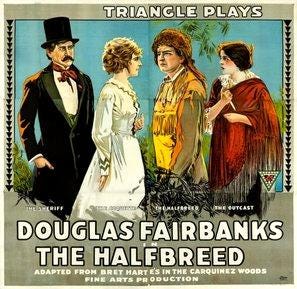



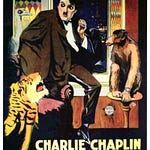
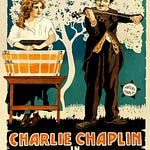

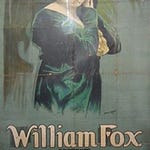
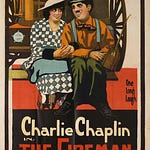

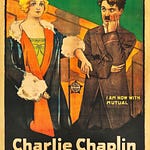
Share this post